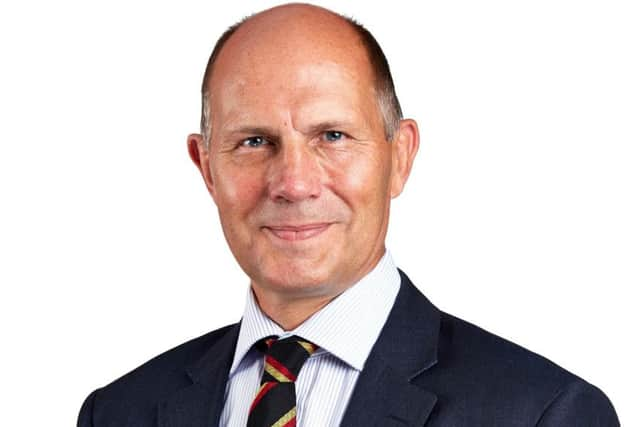Don't bet on the bookies being able to beat tax hikes and over-regulation


I’m proud to have worked in various roles in the betting industry, including a spell as Chief Executive of that much loved British institution, The Tote, and more recently as Chairman of Scotbet.
But I’m worried that the high street bookie is under threat.
Advertisement
Hide AdAdvertisement
Hide AdIncreased regulation, rising costs and competition in the betting industry have taken their toll on high street betting with more than 300 UK shops forced to close over the past two years, including dozens in Scotland.


Scotbet has been in business for over 20 years and we’re proud to be Scotland’s biggest independent bookmaker. We provide jobs and investment across Scotland, including many smaller towns and villages where our shops are an important community hub, particularly for older people.
But our business is hurting because of the impact of higher taxes, full business rates and costly media rights. As a result, we’ve had to close more than 25 shops in recent years – around a third of our entire estate.
It’s become fashionable to bash bookmakers. Often those doing so have never set foot inside a betting shop. If they had, they’d see that we provide a safe and friendly environment where people are encouraged to gamble responsibly. Our shops are tightly regulated by the Gambling Commission, the UK and Scottish Governments and local licensing authorities.
New measures have been introduced across the industry in a bid to tackle problem gambling, including Gamble Aware Week, new alerts on gaming machines, restrictions on advertising and a nationwide multi-operator self exclusion scheme. In many respects, high street bookies are at the forefront of responsible gambling.


Judging by the tone of some political debate, you might imagine that Scotland has a growing problem with gambling addiction. It doesn’t. The Scottish Government’s own figures show that problem gambling fell to 0.7 per cent in 2015 and is now lower than in 2012. That’s lower than the international average, and much lower than comparative figures for alcohol misuse (26 per cent) and adult obesity (29 per cent).
In recent weeks, thousands of betting shop customers in Scotland have signed up to the industry’s backyourlocalbookie.org website and backed a petition calling on the UK Government not to put thousands of jobs at risk as it considers further regulation of the industry.
The Government must strike a balance that respects the right of punters to spend their leisure time and money as they choose, while protecting the small number who get into difficulty. In doing so, it must base its decisions on reason and evidence, not myth and misinformation. Ours is an industry often misrepresented.
Advertisement
Hide AdAdvertisement
Hide AdConsider the issue of Fixed Odds Betting Terminals (FOBTs), which are said to have fueled gambling addiction in the UK. In fact, FOBTs have been in betting shops for more than 15 years. Since then, levels of problem gambling in the UK have remained consistent at around 1 per cent.
Opponents also claim that punters are losing £18,000 an hour on FOBTs, a myth dismissed by the independent regulator as “astronomically improbable”. In fact, the average loss on a FOBT in a single session is around £6 and an average session lasts under 9 minutes. As with other gambling products, the vast majority of customers play for fun and play responsibly.
And then we have headlines describing FOBTs as the crack cocaine of gambling. That term was coined in the 1980s – well before FOBTs were even invented – and has been used to describe various forms of gambling ever since. It has absolutely no scientific basis.
Facts don’t always make for good headlines but they do matter, especially when the stakes are so high.
Our industry supports more than 5,000 jobs in Scotland, many of them women and older people. At a time when the high street is struggling, we continue to invest in our town centres, contributing more than £110 million in taxes and business rates – an average of £112,000 for every shop.
Campaigners for Scotland’s towns welcome the contribution we make. Phil Prentice, Chief Executive of Scotland’s Towns Partnership, says: “As towns struggle through a period of intense change, we cannot afford to lose a stalwart of our town centres, our local bookmaker.”
With the high street bookie under threat, we and others are urging politicians not to put more shops out of business through further regulation or tax hikes.
John Heaton is Chairman of Scotbet and a member of the Association of British Bookmakers (ABB Scotland).